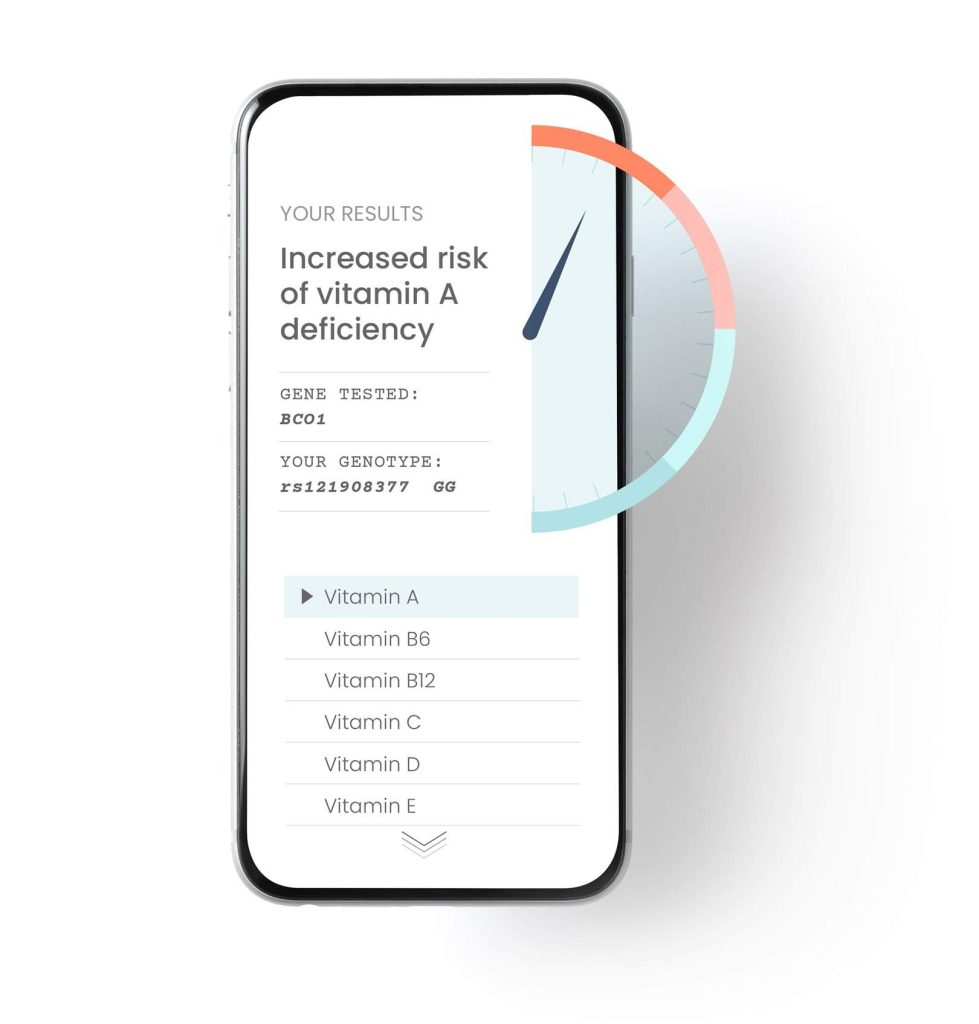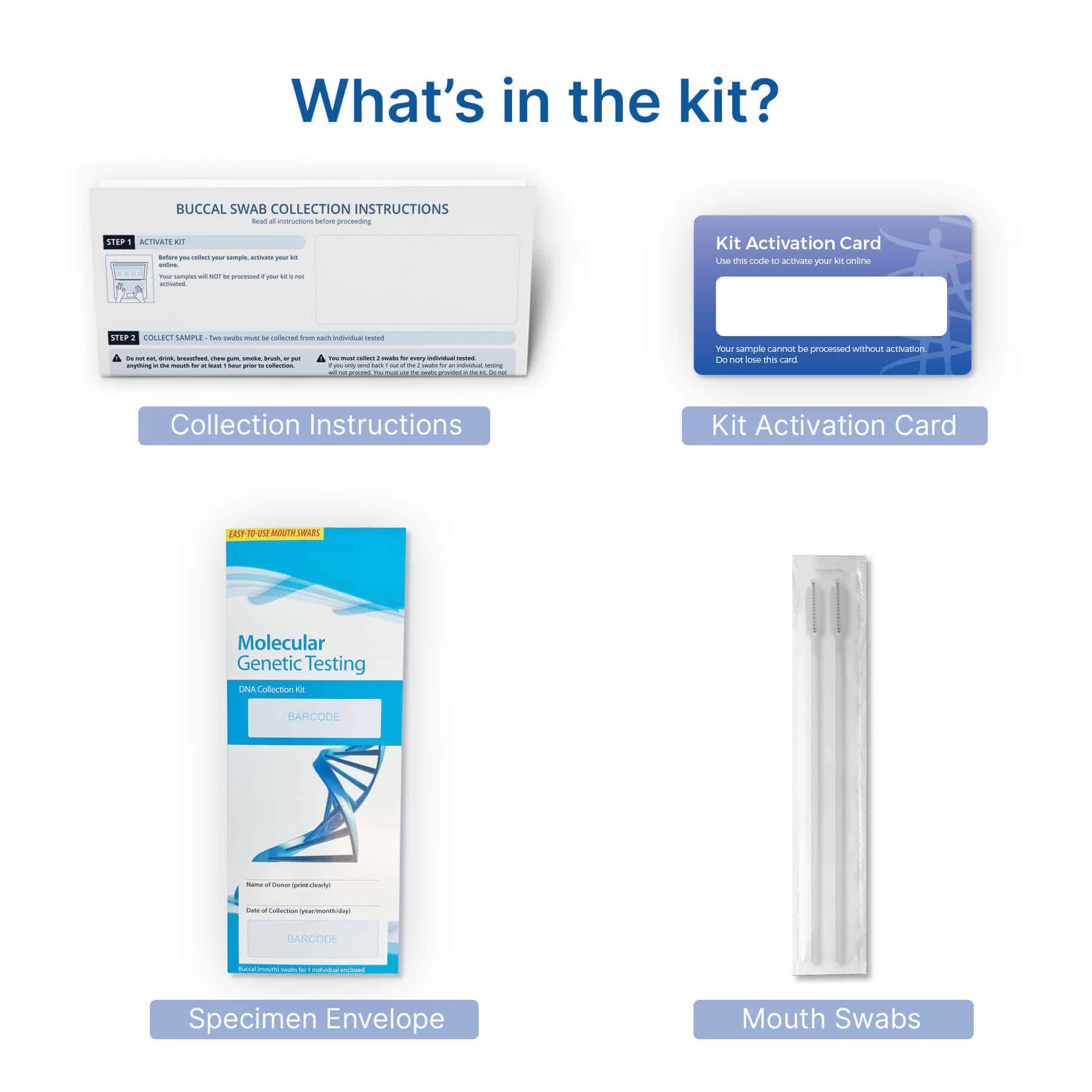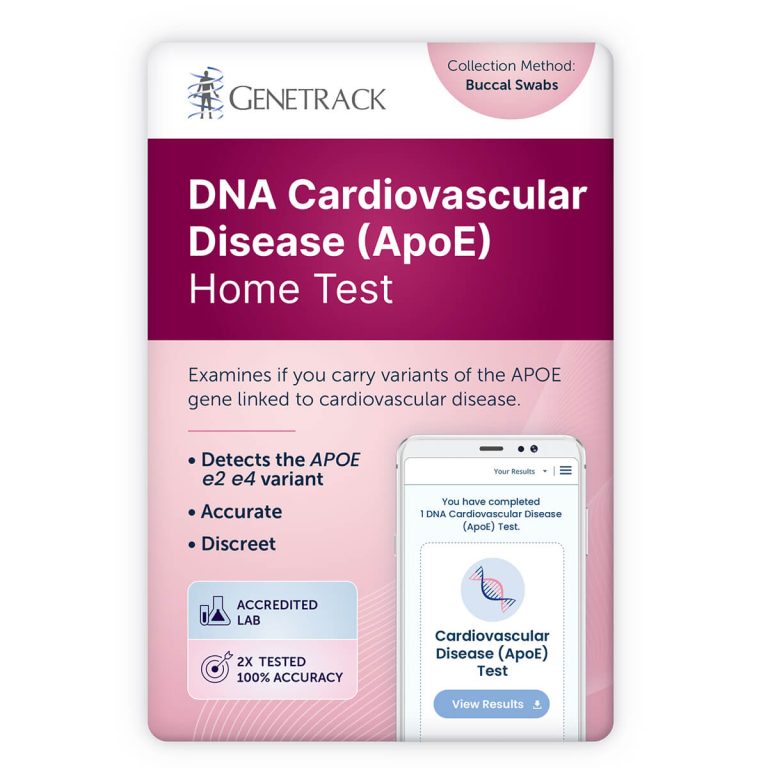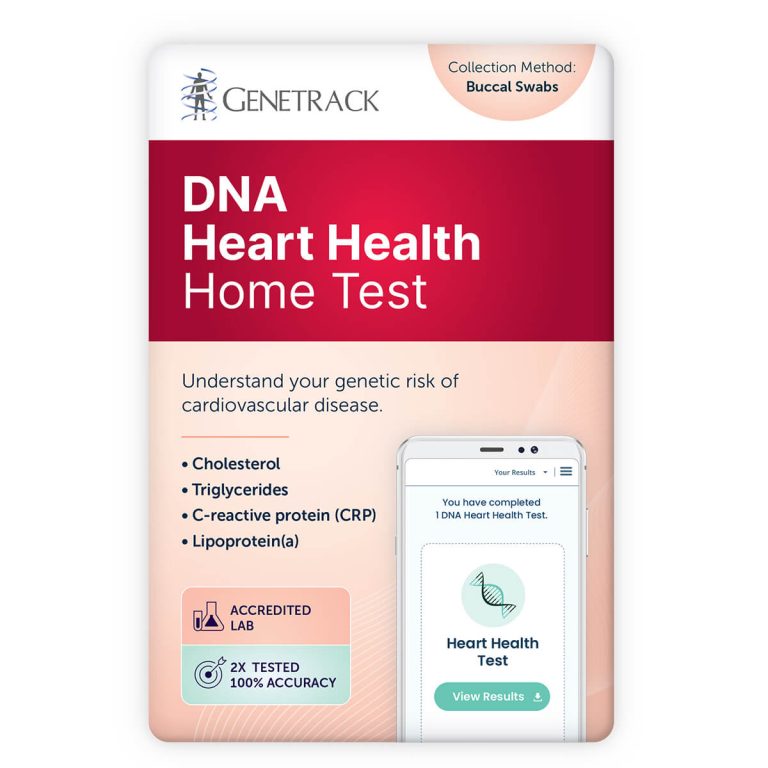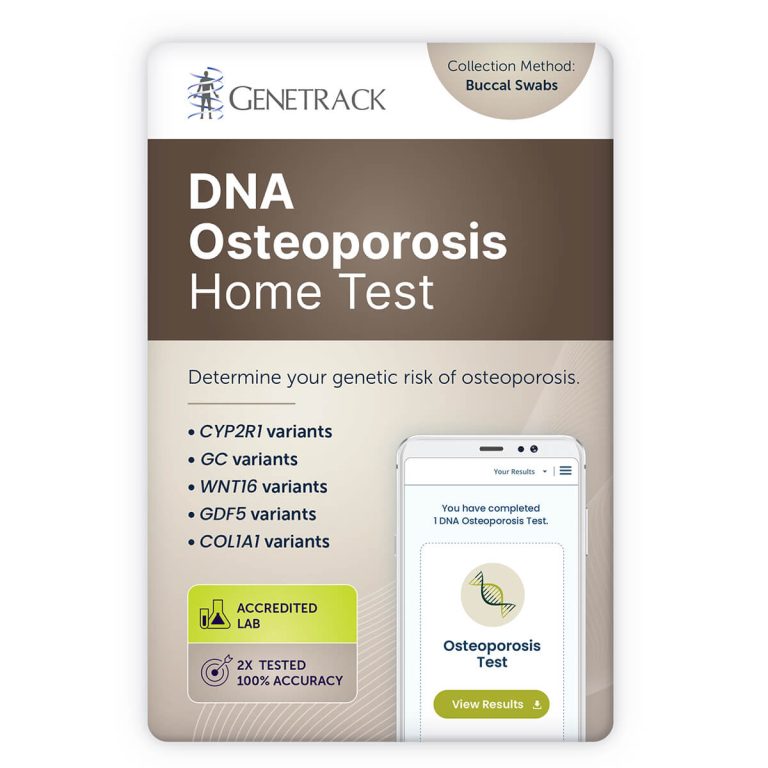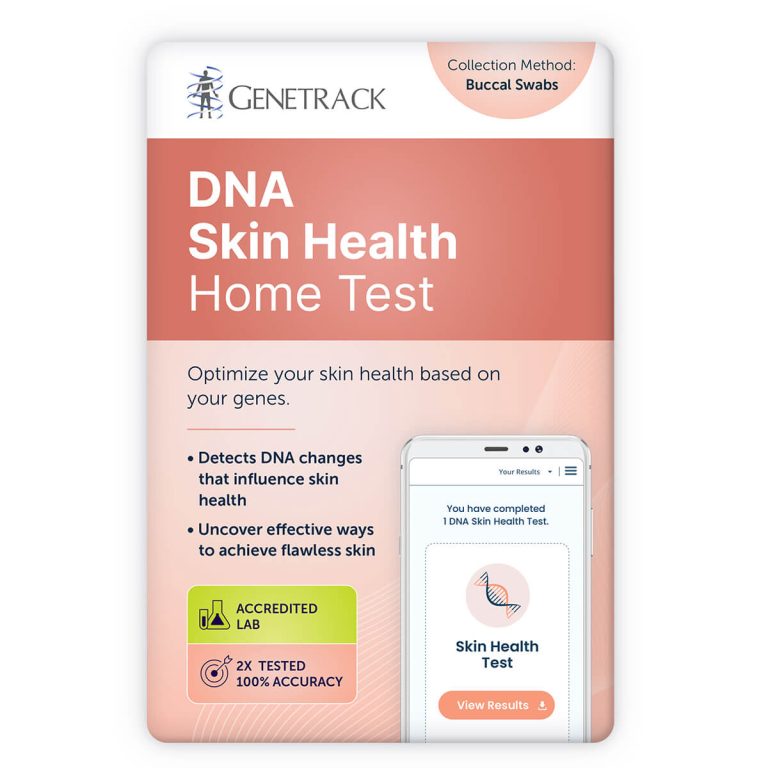DNA Alzheimer’s Disease Test
Discover Your Genetic Predisposition to Alzheimer’s Disease
Unlock insights into your genetic risk for late-onset Alzheimer’s disease. Our easy-to-use DNA test kit identifies the presence of the APOE e4 variant, a key indicator linked to increased chances of developing late-onset Alzheimer’s.
- Simple DNA collection with easy-to-use swabs.
- Detects APOE e2, APOE e3, APOE e4 variants.
- Secure, confidential online results
$195.00
Fast, Convenient, Painless
What is Alzheimer’s disease?
Alzheimer’s is a progressive disorder that affects the brain, impairing memory and essential mental functions. It’s the main cause of dementia worldwide, being responsible for 60–70% of around 55 million global dementia cases as of 2023.
Most Alzheimer’s patients exhibit symptoms after age 65, referred to as late-onset Alzheimer’s disease. This type comprises over 90% of all cases. A rarer type, “early-onset”, can appear before age 65 and is often hereditary.
What causes Alzheimer’s disease?
Alzheimer’s is a neurodegenerative disease, meaning it involves the gradual degeneration or death of brain cells. The first alterations in the brain start well before any recognizable symptoms appear.
The hallmark of Alzheimer’s is the formation of two distinct protein abnormalities:
- Amyloid Plaques: These accumulate between nerve cells (neurons) and disrupt their ability to communicate with one another.
- Tau Tangles: Found inside neurons, they impede the transport of essential nutrients and supplies within the cells.
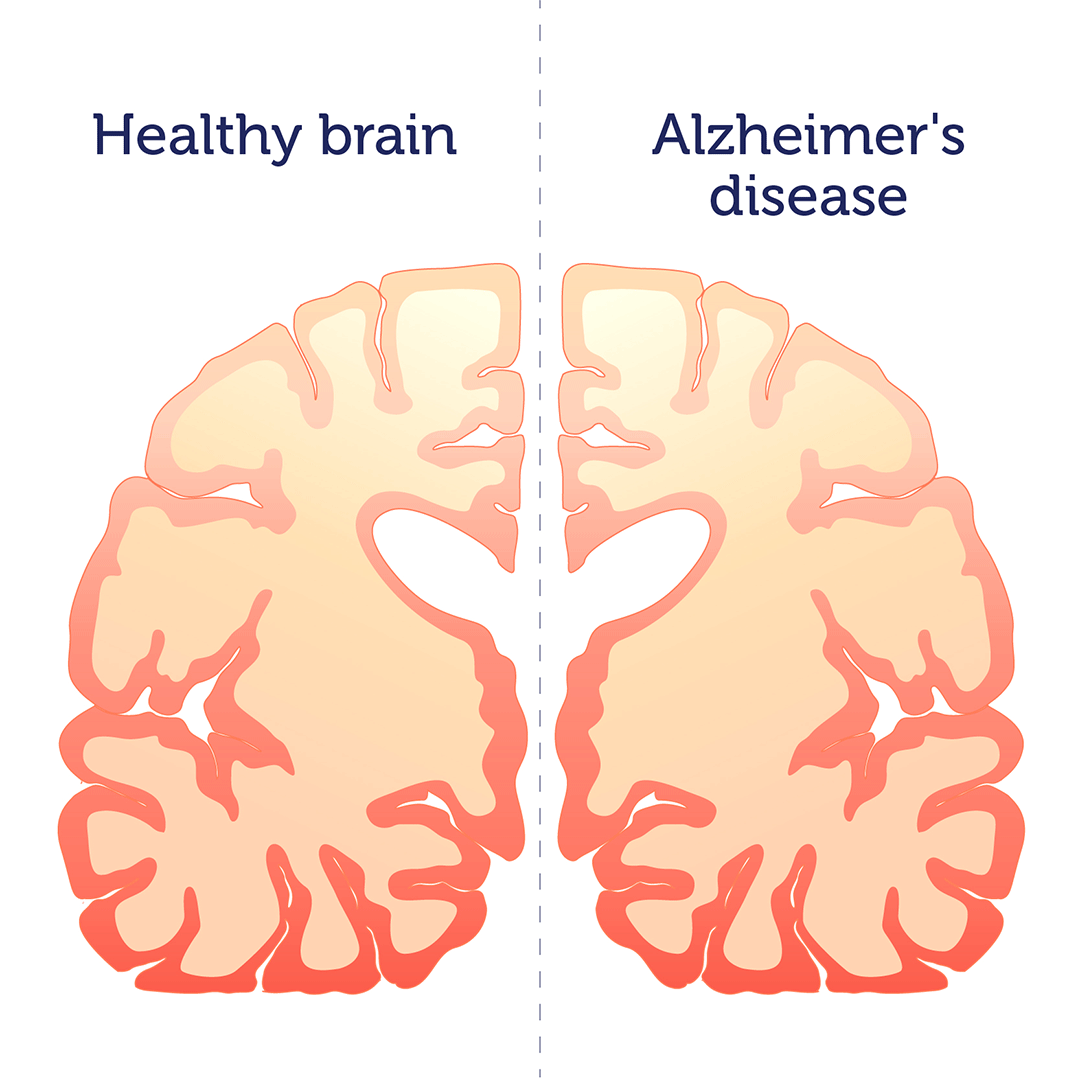
Signs and Symptoms of Alzheimer’s Disease
Alzheimer’s disease, a progressive brain disorder, primarily affects memory and thinking skills. While symptoms can vary among individuals, there are common indicators that might suggest the onset or progression of the disease:
Cognitive Challenges
- Memory: Frequent forgetfulness, especially of recent events or conversations.
- Language: Struggles with word-finding or following conversations.
- Spatial Awareness: Difficulty understanding spatial relationships and surroundings.
- Decision-making: Impaired reasoning or poor judgment, leading to uncharacteristic decisions.
Behavioral and Mood Changes
- Daily Tasks: Noticeably longer times to complete routine activities.
- Repetitiveness: Asking the same questions or repeating the same stories.
- Money Management: Difficulty handling bills and managing finances.
- Orientation: Prone to wandering and getting disoriented.
- Misplacement: Items often left in unusual places.
- Mood Shifts: Alterations in mood or personality, such as increased anxiety or aggression.
Understanding the Genetics
Variation in the APOE gene is the strongest genetic factor influencing the risk of late-onset Alzheimer’s disease. This gene plays an important role in the body including transporting fats, supporting neuronal growth and nerve regeneration, regulating immune responses, and repairing injuries in the central nervous system.
Genetic variants identified in this test
The APOE gene has three common alleles: e2, e3, and e4. Everyone has two copies of this gene, which combine in pairs to influence their Alzheimer’s disease risk:
- e2/e2 & e2/e3 – reduced risk
- e2/e4 & e3/e4 – 3-fold increased risk
- e3/e3 – no added or reduced risk
- e4/e4 – 10- to 15-fold increased risk
Understanding your APOE gene variant helps in early detection and intervention. Early action, including monitoring and medication, can slow down the progression of Alzheimer’s disease. Knowing your risk promotes informed healthcare decisions.
How Home DNA Testing Works

Order Test Kit
From relationship tests to health tests, we offer a wide range of DNA tests to fit your needs.

Collect & Ship
Simply collect DNA with our easy-to-use swabs in the comfort of your home.

Receive Results
Access your confidential results online the moment testing is completed. Our team of experts is available for any questions.
Secure & Confidential Online Results
